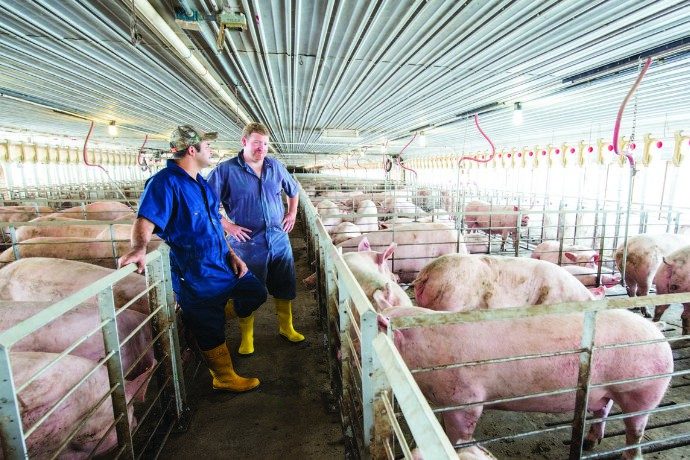SMITHFIELD, VA. — Construction and operation of methane digesters were authorized following a ruling by a North Carolina administrative law judge, which rejected a challenge to a general permit issued by the North Carolina Department of Environmental Quality (DEQ).
Judge Donald R Van der Vaart held that the permit was lawfully issued following specific directives from the North Carolina General Assembly.
The original lawsuit was brought on by the Environmental Justice Community Action Network and Cape Fear River Watch, which wanted to require DEQ to consider “alternative technologies” in issuing a permit for anaerobic digesters.
Meat producer Smithfield Foods was one of the companies developing digesters that capture renewable natural gas (RNG) from methane emissions in hog lagoons.
The company said the projects would reduce greenhouse gas emissions (GHG), reduce flooding and provide diversified income streams for farmers.
“This is a huge victory for hog farmers who are adopting innovative technologies to protect the environment,” said Stewart Leeth, chief sustainability officer for Smithfield Foods. “Our biogas projects produce low-carbon RNG and represent a substantial financial commitment to transform the future of clean energy and sustainable agriculture and improve the quality of life in surrounding communities. It defies logic that these environmental groups, which initially supported and encouraged digesters and covered lagoons, would attack Smithfield’s voluntary efforts to produce clean, renewable energy and enhance water and air quality in North Carolina.”
In the last few years, Smithfield completed a manure-to-energy project installed on nearly all of the company’s Northern Missouri hog finishing farms. Construction of the project officially began in 2014 and ended up costing approximately $150 million.
Smithfield also completed a renewable gas line at its Tar Heel, NC, plant in January 2020.
The company continues to maintain its pledge to reduce its greenhouse gas emissions (GHG) in the US supply chain by 30% by 2030.



